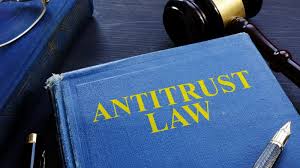DOJ Takes Stock of Criminal Cartel Prosecution Program

The Justice Department’s Antitrust Division has a long and rich history. For years, “the Division” as it liked to refer to itself, charted its own path in antitrust enforcement, especially when it comes to criminal prosecutions.
The transformative event was the Antitrust Division’s revision and expansion of the Corporate Leniency Program in 1993 and prosecution of international cartel cases. The Antitrust Division’s Leniency Program was a force multiplier for criminal enforcement, resulting in the prosecution and breakup of a vast global vitamin cartel. Since that time, the Antitrust Division has tweaked the Corporate Leniency Program but adhered to its basic principles. International cartel enforcement ramped up as well over 50 countries now employ some form of a corporate leniency program.
Richard Powers, the Acting Assistant Attorney General, delivered a speech updating the Antitrust Division’s criminal prosecution program. DOJ speeches are often informative and provide insight into current thinking and initiatives.
In a recent announcement, President Biden has nominated Jonathan Kanter to the position of AAG for the Antitrust Division. Kanter is well-regarded in antitrust circles and likely to increase prosecution of civil and criminal antitrust enforcement programs.

Unlike civil antitrust enforcement, criminal antitrust prosecutions are not subject to the same political dynamics. Criminal prosecutions ebb and flow according to normal flows and allocation of resources. Interestingly, AAG Powers noted in his speech that Antitrust Division criminal resources are at the lowest point over the last ten years; however, the number of pending indictments and ongoing grand jury investigations is at the highest point in the last ten years. All of this is likely to combine to a significant increase in criminal prosecutions in the next few years.
AAG Powers outlined the significant change that occurred in 2019 in Antitrust Division credit for corporate compliance programs. Under the new policy, the Antitrust Division will take into account a company’s existing corporate compliance program at the time the company resolves its criminal case. Corporate compliance program credit can make the difference between a company entering into a deferred prosecution agreement or having to plead guilty to a criminal offense. The difference can be significant, especially if the company’s business involves a regulated industry. In addition, the nature and extent of a company’s corporate compliance program could result in a decrease in a criminal fine as part of the resolution.
DOJ’s policy crediting corporate compliance programs is one part of an overall benefit. AAG Powers explained that implementing an effective antitrust compliance program will lead to early detection of an illegal cartel and thereby place the company in an advantageous position to self-report and possibly earn the coveted leniency position.
Interestingly, Acting AAG Powers announced a “new” policy eliminating its long-established practice of notifying targets of an impending indictment and affording counsel to meet with Antitrust Division officials to persuade them not to indict the individual.

The notification process is discretionary. In some cases, such a notification requirement can compromise an ongoing investigation. The Antitrust Division appears to be expanding its discretion in this area to avoid any notification when “subject and counsel make clear they are not interested in meaningful, good-faith interactions.” In practice, this announcement may not have a significant impact on Antitrust Division procedures. If a prospective defendant is concerned about being charged and wants to raise issues concerning the impending indictment, the lack of DOJ notice from a “target letter” would not foreclose ongoing dialogue or opportunities to convince prosecutors not to charge a putative defendant.
AAG Powers closed by underscoring the vitality of its Leniency Program. AAG powers noted the Antitrust Division has 17 indicted cases across 14 different investigations, against 9 companies and 31 individuals. Charges are pending against 8 current or former CEOs/Presidents.















